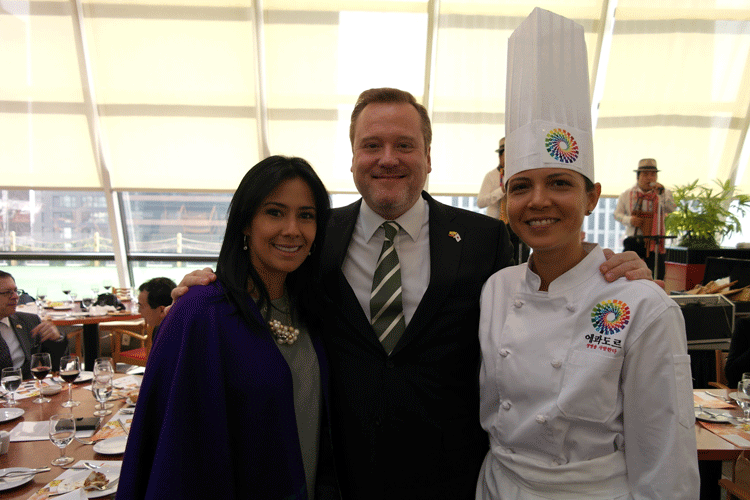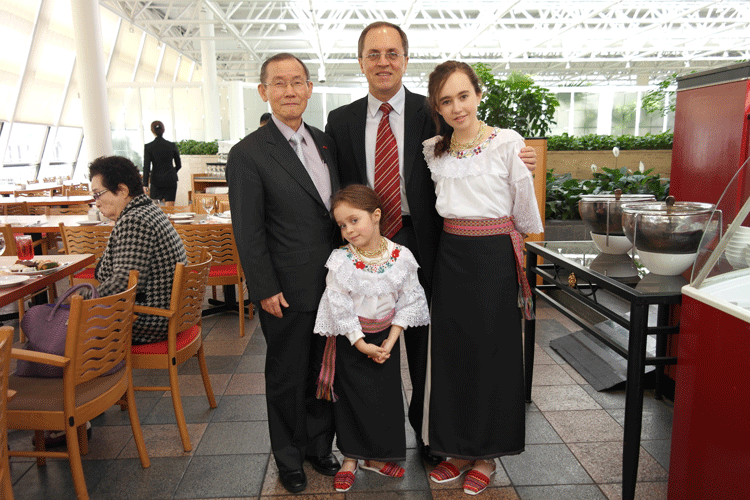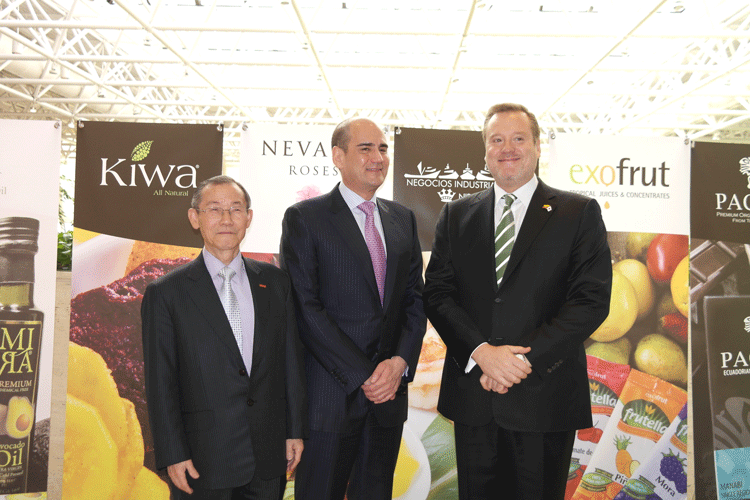Ecuador gastronomy in Korea
Ambassador and Mrs. Nicolas Fabian Trujillo Newlin of Ecuador, with Commercial Counsellor and Mrs. Marcelo Javier Pazos Henandez, opened an impressive Ecuadorian Food Festival at the prestigious Millennium Seoul Hilton’s international buffet restaurant, Orangerie, on March 4, 2014.
It was attended by many ambassadors and spouses, senior officials from the Ministry of Foreign Affairs (MOFA), business leaders and representatives of the travel and tourism organizations as well as from the media.
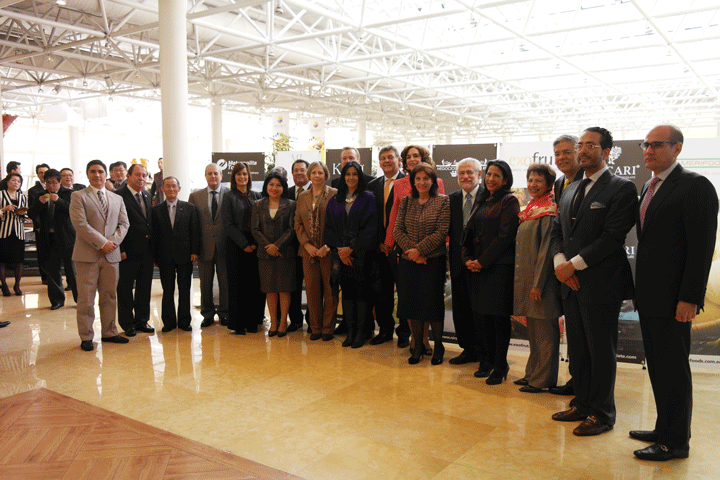
Among the foreign mission chiefs in attendance to congratulate the opening of the month-long Ecuadorian food fest were Ambassadors Manuel Lopez Trigo of Costa Rica, Gustavo Adolfo Lopez Calderon of Guatemala, Guadalupe Palomeque de Taboada of Bolivia, Hector Gonzalez Urrutia of El Salvador, Alba Florio Legnani of Uruguay, Nicolas Fabian Trujillo Newlin of Ecuador, Jaime Alberto Cabal Sanclemente of Colombia, Hernan Brantes Glavic of Chile, Grecia Fiodalicia Pichardo of Dominican Republic, Aram Cisneros of Panama and Yadira Hidalgo de Ortiz of Venezuela (CDA); Commercial Counsellor Marcelo Javier Pazos Hernandez, General Manager Eric Swanson of Millennium Seoul Hilton Hotel and Chairman-Publisher Lee Kyung-sik of The Korea Post.
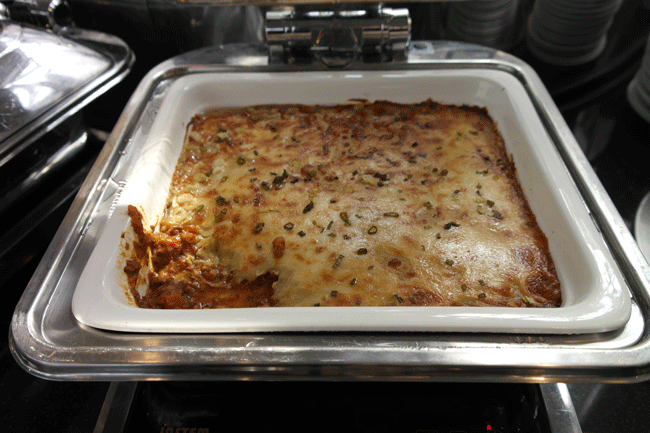
Adding to the exotic and exciting ambience of the festival, besides the mouth-watering Ecuadorian delicacies were, two native Ecuadorian musicians (Jose Lema and FabianPicuisi from Kiwsiy Music Band) who played traditional musical instruments of Ecuador, including a multi-piped flutes, covered a wide range of Ecuadorian and Latin American numbers that literally captivated an estimated 400 Korean and international guests, especially El Condor Pasa that is already popular in Korea known in Korean as “The Migratory Birds Are Gone.”
Leading the kitchen of Orangerie throughout the Ecuadorian Food Festival is Ecuadorian Chef Ms. Maria Ruth Moreno.
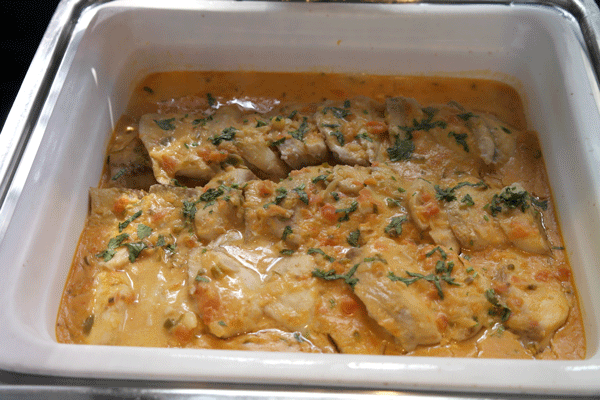
Speaking to the guests in opening remarks, Ambassador Trujillo Newlin introduced a wide variety of traditional Ecuadorian foods prepared with top-quality meat and vegetables from his country. He said: “Because of its geographical and cultural diversity, Ecuador is blessed with a wide range of fruits, vegetables and other edible items. The Andes are the birthplace of the potato, for example, and several hundred species are grown here. The Incas knew ways of treating potatoes so that they could be stored for many years. Interestingly enough, they valued the potato not only as nourishment, but also as a unit of time measure, the unit being the length of time it took to cook one.” (See further details toward the end of this Article.)
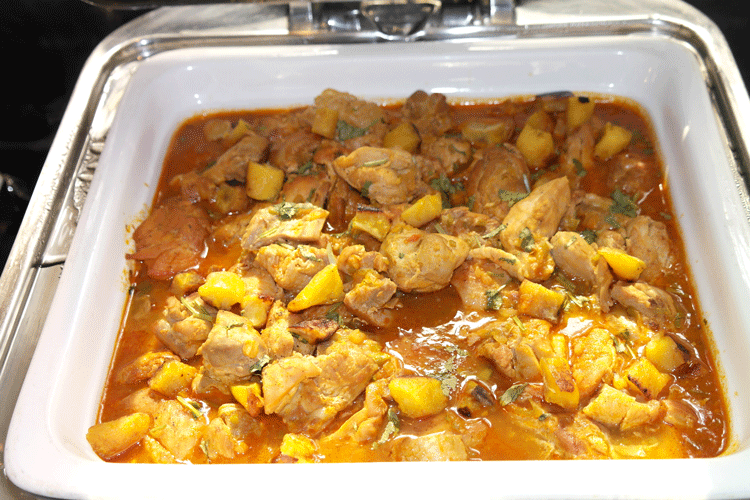
Commercial Counsellor Marcelo Javier Pazos Hernandez followed the speech of Ambassador Trujillo Newlin, and emphasized the importance of increased trade between Korea and Ecuador recommending the Korean import companies to buy more Ecuadorian products so that the balance of trade of the two countries can improve. (See excerpts from his speech at the end of this Article.)
He also introduced Ecuadorian rose flowers that came in various different colors. Each rose flower had different colors of petals.
Among the representative foods of Ecuador on display were Ripe Plantain Gratin with Chrozi (made with banana and sausages), Fish in coconut sauce, Chicken stew with passion fruit, Roasted shrimps with potatoes, lemon and capers, Shrimp rice, Quito’s fried pork and Sauted beef.
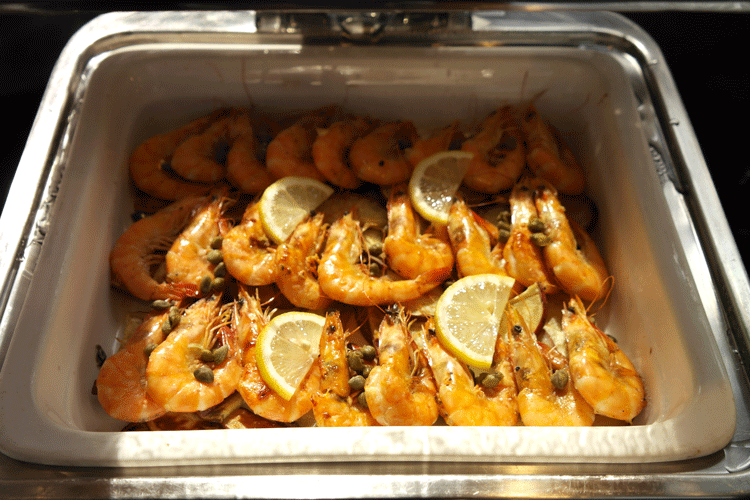
Excerpts from the speech of Ambassador Nicolas Fabian Trujillo Newlin of Ecuador:
I welcome you today's delicious event "Ecuador Gastronomy in Korea.
Because of its geographical and cultural diversity, Ecuador is blessed with a wide range of fruits, vegetables and other edible items. The Andes are the birthplace of the potato, for example, and several hundred species are grown here. The Incas knew ways of treating potatoes so that they could be stored for many years. Interestingly enough, they valued the potato not only as nourishment, but also as a unit of time measure, the unit being the length of time it took to cook one.
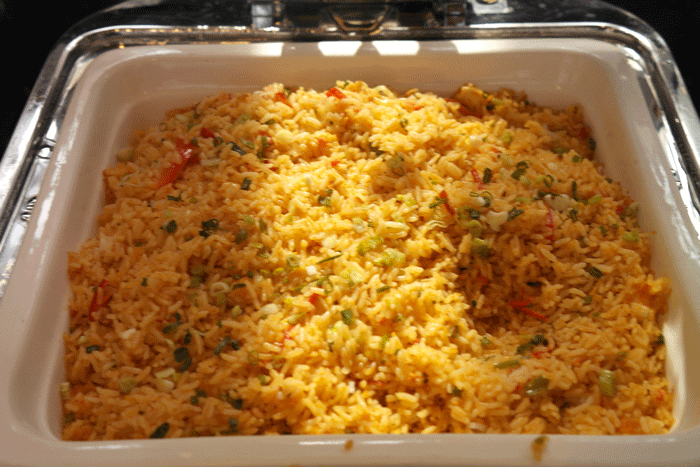
As for tropical fruits grown in Ecuador you will see and taste delicious varieties you never knew existed. The various forms of passion fruits, melons, mangoes, papayas, pomegranates, kiwis, kumquats, custard apples, bananas, guavas, and tamarinds number in the thousands. The favorite berry-sized tomato known as tomate de arbol [tree tomato] which makes a delicious fresh fruit drink. Another unusual fruit is a babaco, which looks something like a papaya but tastes more like a pineapple. Naranjilla, a greenish orange type fruit, also makes wonderful juice [jugo], as so maracuya, taxo, the white guanabana juice and mora [blackberries].
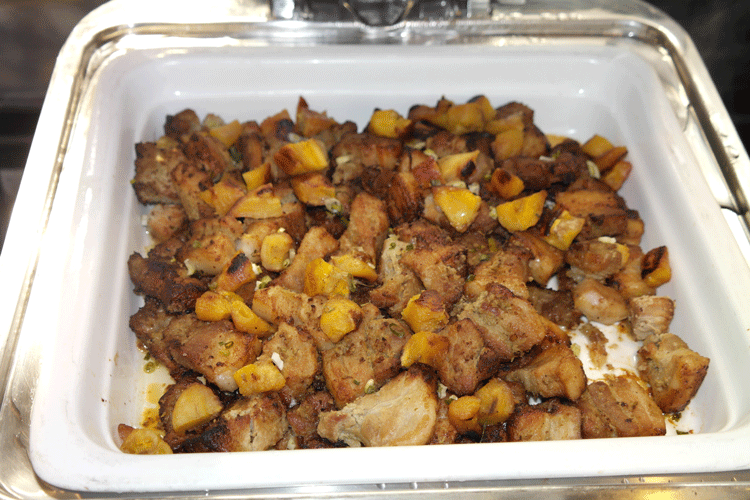
With its abundance of seafood, fresh fruits and vegetables, the cuisine in Ecuador is regarded as some of the best in the country. The greatest glory of the coastal cuisine is ceviche, which is fresh fish or shellfish marinated using various recipes combining lime or lemon, chili, onions, coriander [cilantro] and perhaps other spices. Ceviche is popular throughout the country and indeed along the length of the Pacific coastline of the entire South and Central America region, as well as Mexico. Ceviche can be made from fish, shrimp, lobster, clams, mussels, oysters or mixtures of all of these.
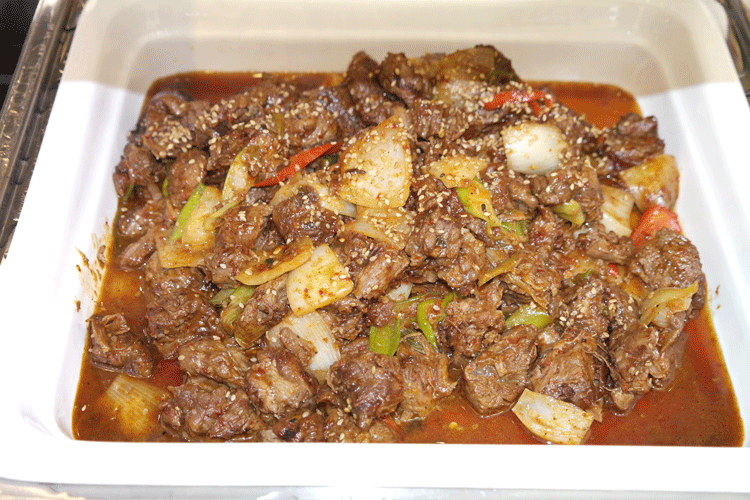
As you can probably tell already, I could speak for hours about the wonderful cuisine of Ecuador, but I will stop here so we can move onward to the actual tasting of the food itself. For the next few weeks, star Ecuadorian Chef, Mademoiselle Maria Ruth Moreno, who is not only an expert in preparing Ecuadorian food, but was also classically trained in France, will be gracing us with her culinary creations.
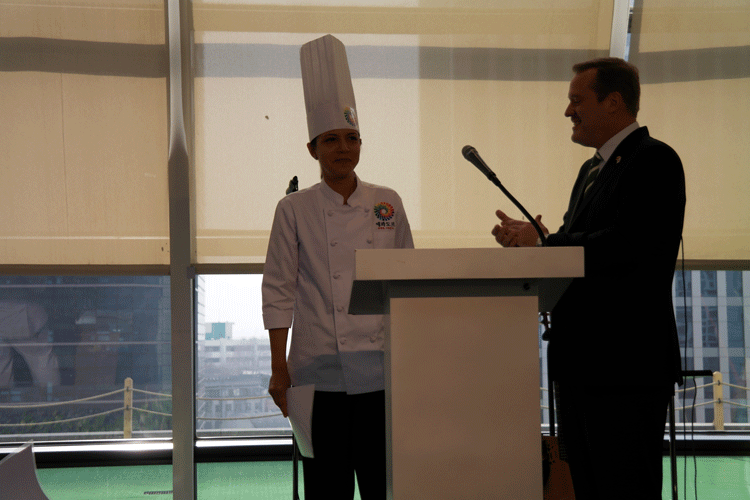
I believe that the cultured palate of the Korean people will share with us the excitement and preference for the wonderful and unique taste of Ecuadorian food.
Again, Thank you for joining us today and we hope you enjoy this event.
Excerpts from the speech of Counsellor Marcelo Javier Pazos H. of Ecuador:
Ambassador Nicolas Trujillo and Chef Maria Ruth Moreno have explained very well the great characteristics of Ecuadorian food made with the best products of the world, not just because of their outstanding quality but also because they are produced in a responsible way towards people and nature.
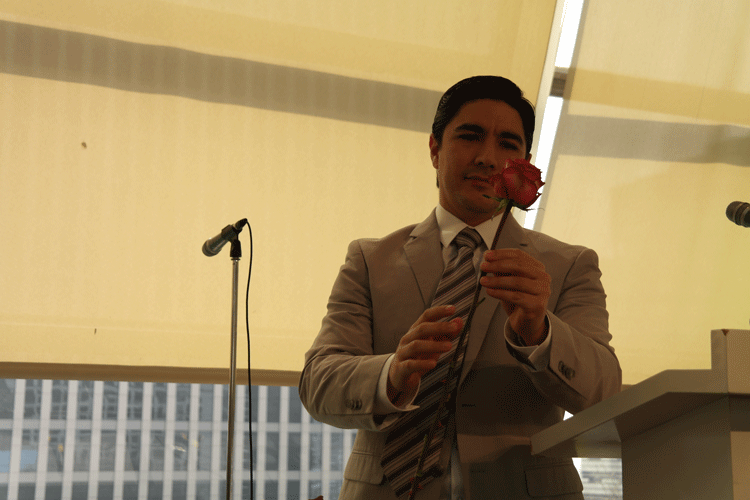
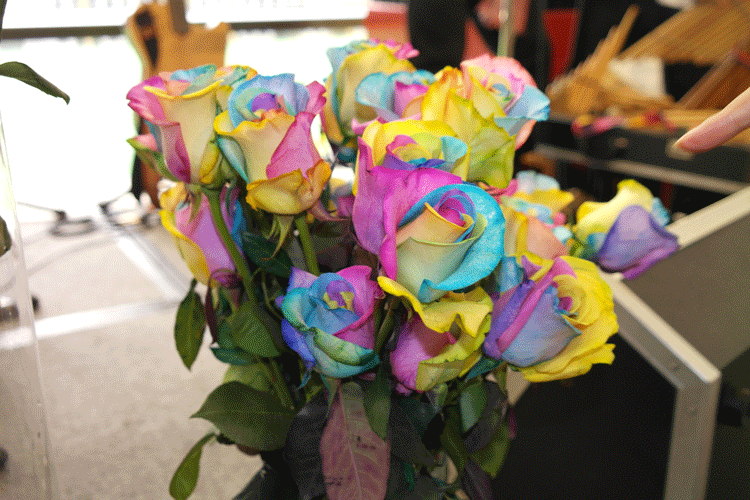
For Pro Ecuador, the Institute for Export and Investment Promotion, the goal of this event is to promote Ecuadorian products that are being - or can be - exported to Korea.
Nevertheless, this one month's event is not an isolated activity but part of a challenging strategy that aims to reduce the huge trade imbalance between two countries.
This strategy focuses on three pillars: export promotion, investment attraction and the signing of a Trade Agreement to promote growth and development.
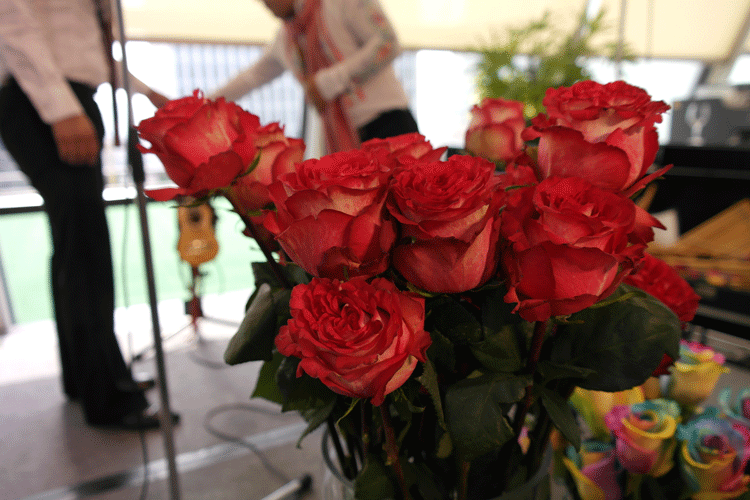
Dear importers and distributors here present, we are sure that this year Korea's Government will accept our permanent request to start negotiations of a trade deal that will allow you to have equal competitive conditions for your business compared with other trading countries.
Therefore, as a result of this hard work, we expect that Korean consumers can enjoy the richness, nutrients and great taste of these incomparable foodstuffs; the beauty and perfection of the best rose of the world or the quality of UNESCO intangible heritage hand-made "Toquilla straw hats."
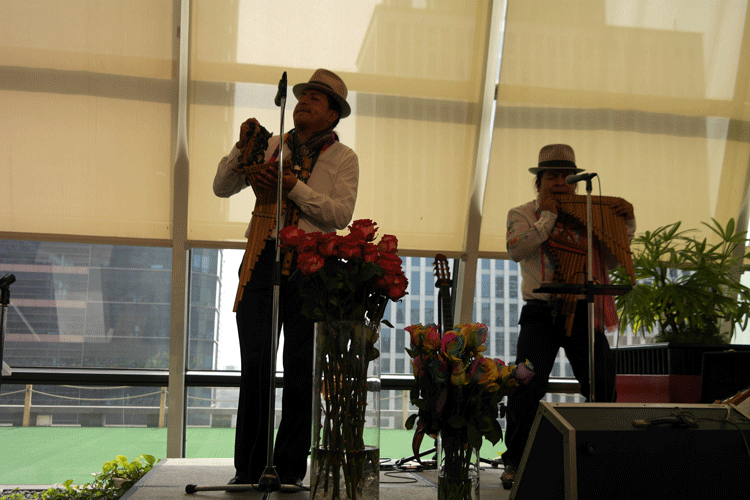
Thank you very much and do not hesitate to visit Pro Ecuador to ask for business and investment opportunities in the land of Galapagos Islands, Andes Mountains, amazing beaches, Amazon rainforest, filled with great human talent that will welcome you to work as Koreans do: fighting!!!
